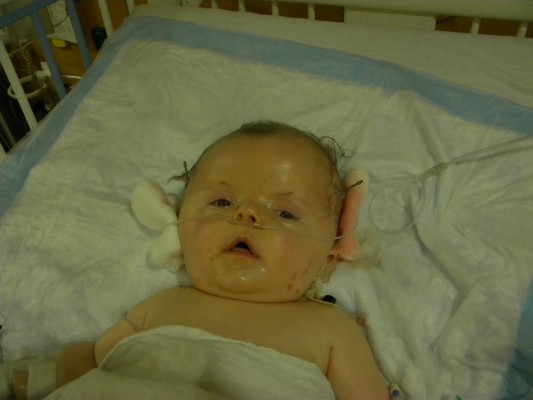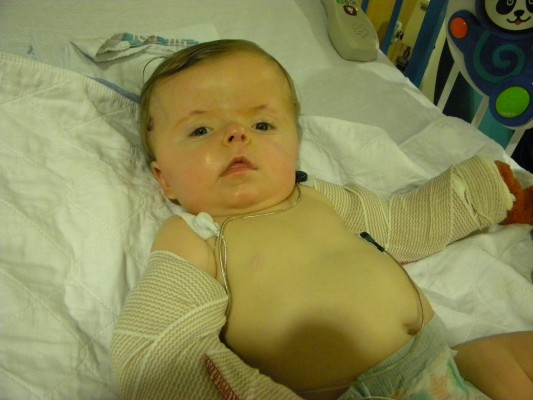My understanding of “poverty” has evolved over the past year or so.
Like most people, when I heard the word “poor,” my mind conjured up images of the homeless and those in shelters or soup kitchens. Sadly, my concept of poverty was limited to socioeconomic status.
I have since learned that poverty can take many forms – spiritually, emotionally, materially, etc. True Gospel poverty is a lifestyle choice and has nothing to do with the socioeconomic status one is born into. To be “poor in spirit” is a gift, a virtue, a grace. God calls certain people to a particular level of simplicity which extends beyond that which most of us understand or desire. St. Vincent de Paul understood Gospel poverty so intensely that it became his entire mission, ministry, and way of life.
I read a reflection in the Magnificat on St. Vincent de Paul’s feast day by Jean Vanier. It was another piece of wisdom that has expanded my view of what poverty is and who the poor among us are.
“Through baptism, each person’s heart belongs to God. Some people, however, are called to manifest this gift of their belonging in a special way and through a particular way of life. The Gospels seem to reveal to us another aspect of consecration: the mystery of the poor consecrated to God through the sacred “oils” of pain, rejection, and weakness. When Paul says that God has chosen the weak, the foolish, and the rejected, or when Jesus, in Matthew’s Gospel, describes the Kingdom of God as a wedding feast to which all the poor, the lame, the sick, and the blind are invited, they confirm that the weak have a preferential place in the heart of God. Jesus himself was rejected and outcast; he identifies with the rejected, the outcasts. Is that not the Gospel’s new order that replaces the old? We in L’Arche are beginning to touch something of the mystery that people like St. Vincent de Paul grasped when he said: ‘The poor are our teachers.’
“This does not mean that exclusion or rejection are in accordance with God’s will. On the contrary! They are the fruits of sin and hardness of heart. The Gospel shows, however, that God welcomes in a special way those whom society rejects.”
Look at this little one:
Here is an example of one who is poor. She is an infant, barely six months old, who was born with facial and other physical differences. She has undergone a major surgery to modify her skull so that her brain has room to grow inside the skull. She is in pain, a pain some of us who are well into adulthood may never experience ourselves. Yet she is poor.
Being poor should not elicit negative thoughts or emotions. We should not view the poor shamefully or condescendingly. In fact, we should seek to be poor ourselves. Being “poor in spirit” means that we are empty; we acknowledge our nothingness, sinfulness, weakness. And in so doing, we hand over our pride, hardened hearts, fears, and facades to God. It is only when we become empty of ourselves that God can fill us with His Love and thus fulfill His beautiful purpose in our lives.
People like my daughter Sarah are born “poor in spirit.” There is an honesty and authenticity about them that is so rare that it has become a treasure to many.
The poor teach the rest of us, because they have nothing to hide from the world. They possess nothing, and they know that. Their poverty is evident and visible; it is impossible to hide from the world.
While most of us live in comfort and seek wealth and status, the poor have become accustomed to discomfort and pain and suffering. That is their way of life, and yet many of them – in their vulnerability – make us uncomfortable. I believe this is because we do not want to face the poverty in ourselves; we cover up our struggles and sins and instead show the world our “happy face.” We allow the world to believe in a lie about ourselves, which sometimes we come to believe, as well. This delusion is not uncommon.
But the poor remind us that we are like them. We, too, are lacking in something. Perhaps it is not in money or socioeconomic status or education. Perhaps our poverty is in the secrets and darkness we are tempted to hide. Perhaps we are poor, because we do not have God. We do not have faith. And so our poverty is due to the void we feel each day, because we do not experience God’s goodness and grace.
I am humbled in the sight of the poor and suffering, the babies and the elderly, those with physical and cognitive differences. When I look into Sarah’s eyes and see such great love, my heart is pierced with the understanding that I lack love and am quite selfish. When I see a homeless man hanging his head in shame, I am reminded that I am like that man on the inside, ashamed of my own sins that I am able to hide, but which he cannot.
In my youth I was convinced that I was somehow “set apart” from others, because I had a good education and came from a good home. God has since humbled me and allowed me to be humiliated many times in my adult life, and I am now grateful for these humiliations. I now see how they were opportunities for me to grow in grace and sanctification.
Today, the poor are beautiful to me. I want to be like them. I want to share in their suffering, because I now understand that suffering is a common thread in humanity. They are representative of God, because they are not afraid to be real, to allow their misery and strife to be visible.
Sarah was born that way, naked and unashamed of who she is and how she was created to look differently than most of us. In turn, I am the one who has learned from her and continue to be amazed when I see highly educated professionals tell me how much she has touched their hearts.
That is the gift of grace that is evident in the poor.
Copyright 2013 Jeannie Ewing
About the Author
Jeannie Ewing
Jeannie Ewing believes the world ignores and rejects the value of the Cross. She writes about the hidden value of suffering and even discovering joy in the midst of grief. As a disability advocate, Jeannie shares her heart as a mom of two girls with special needs in Navigating Deep Waters and is the author of From Grief to Grace , A Sea Without A Shore , and Waiting with Purpose. Jeannie is a frequent guest on Catholic radio and contributes to several online and print Catholic magazines. She, her husband, and three daughters live in northern Indiana. For more information, please visit her website lovealonecreates.com.




.png?width=1806&height=731&name=CatholicMom_hcfm_logo1_pos_871c_2728c%20(002).png)
Comments